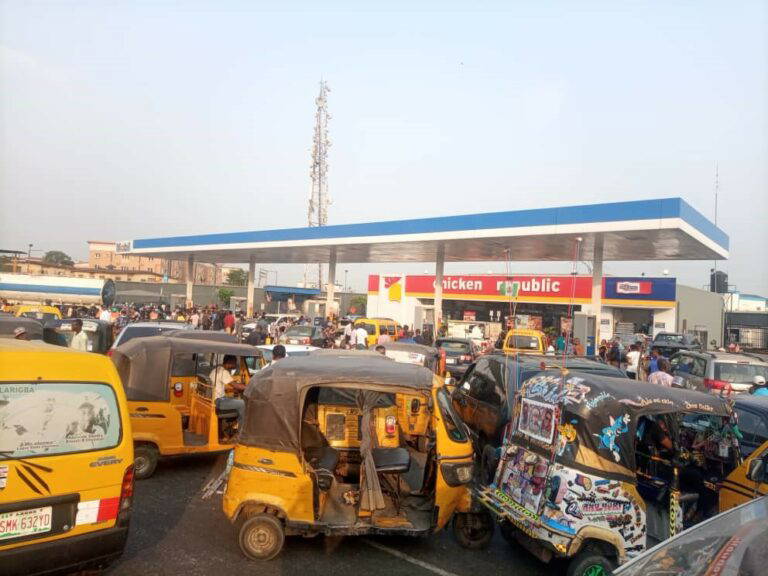The rising cost of locally refined Premium Motor Spirit (PMS) has sparked concerns among stakeholders in Nigeria’s downstream oil sector, as data reveals that petrol refined domestically is more expensive than imported alternatives.
As of December 5, 2024, the landing cost of a litre of imported PMS was pegged at **₦958.89**, according to the Major Energies Marketers Association of Nigeria (MEMAN). However, petrol from the Dangote Refinery was priced at **₦970/litre**, while the Port Harcourt Refining Company charged **₦1,030/litre**.
Industry operators attribute the higher cost of locally refined PMS to **dollar-based charges** levied on domestically consumed commodities and the costs associated with importing crude oil.
The **Crude Oil Refinery Owners Association of Nigeria (CORAN)** noted that jetty, pipeline, and other operational charges are still calculated in dollars, despite the product being consumed locally. According to CORAN’s Publicity Secretary, Eche Idoko, these dollar-denominated fees significantly inflate the cost of production.
*“Receiving and charging fees for domestically consumed commodities in dollars is a major challenge to trade and businesses, especially within the downstream sector,”* Idoko said.
### Calls for Reform
Operators and oil marketers have called on government agencies, including the Nigerian Maritime Administration and Safety Agency (NIMASA) and the Nigerian Ports Authority (NPA), to align their fees with the local currency.
Hammed Fashola, National Vice President of the Independent Petroleum Marketers Association of Nigeria (IPMAN), expressed concern over why some charges remain in dollars despite President Bola Tinubu’s directive that crude oil should be sold to local refineries in naira.
*“If companies like NIMASA and NPA continue to charge in dollars, the price of PMS and other refined products will remain high,”* Fashola stated.
Similarly, IPMAN’s National Publicity Secretary, Ukadike Chinedu, stressed the need for agencies to comply with the presidential directive, urging them to accept naira payments instead of dollars.
### NIMASA Responds
A NIMASA official confirmed that jetty and vessel charges are still in dollars but assured that efforts are ongoing to transition these charges to naira. Discussions between the Federal Government and key stakeholders, including Dangote Refinery, are underway to implement these changes.
### Additional Factors
Apart from dollar-denominated charges, the importation of crude oil by local refiners further affects pricing. A marketer explained that fluctuations in crude oil prices and exchange rates significantly influence the cost of locally refined products.
*“For instance, if crude is imported at $80 per barrel with an exchange rate of ₦1,600/$, the refinery would take time to deplete that stock before prices adjust,”* the marketer explained.
### Freedom of Choice
Given the price disparities, oil marketers advocate for the freedom to choose between local and imported products, depending on profitability.
*“As business people, we will buy from wherever gives us the maximum gain. Local petrol may be costlier today but cheaper tomorrow. The market must remain flexible,”* a dealer noted.
As Nigeria strives to increase its local refining capacity, stakeholders are calling for systemic reforms to reduce operational costs and ensure competitive pricing of domestically refined petroleum products. Without addressing these challenges, the promise of cheaper locally refined PMS may remain elusive.

